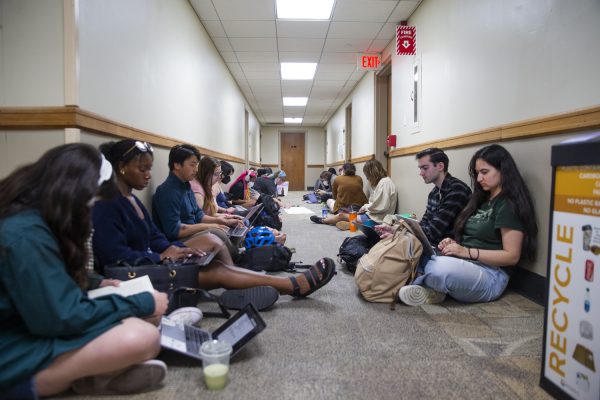Governor signs bill allowing stun guns on college campuses
Gov. Kim Reynolds signed a bill on May 9 that prevents state universities and colleges from creating policies against carrying stun guns on campus, conflicting with UI policy.
The Capitol building in Des Moines is pictured on April 29, 2018.
May 9, 2019
xxGov. Kim Reynolds signed a bill into law on May 9 that prohibits public universities and colleges from banning stun guns on their campuses.
The bill, Senate File 188, prevents any state Board of Regents university or community college in the state from creating policies against carrying nonprojectile stun guns.
The bill conflicts with University of Iowa policy. A number of weapons are banned under UI policy for anyone on the university campus, including students, faculty, and visitors.
RELATED: Stun-gun bill would overturn University of Iowa weapons policy
Weapons prohibited at the UI include “guns, knives intended for self defense as opposed to cooking, stun guns, batons, martial arts weapons, and other items,” according to the Student Legal Services website.
The state Legislature legalized carrying stun guns for people over the age of 18 in 2017.
Rep. Matt Windschitl, R-Missouri Valley, previously had said the bill was intended to provide options for university students and improve safety.
“This is about people being able to make the decision for themselves, choose to use one of these devices if they need to … and be able to hopefully avoid having a tragic attack and or assault perpetrated upon them,” Windschitl said during floor debate in the House of Representatives on April 16.
The regents did not register a position on the bill. Regent spokesman Josh Lehman wrote in a previous email to The Daily Iowan that student safety is a top priority for the regents. He said on May 9 he does not have any further comment beyond the previous statement.
“Student safety has been, and will continue to be, a top priority for the board and its institutions,” Lehman wrote. “Making our campuses the safest environments possible, which allows for high-quality learning, is something we take seriously.”





















